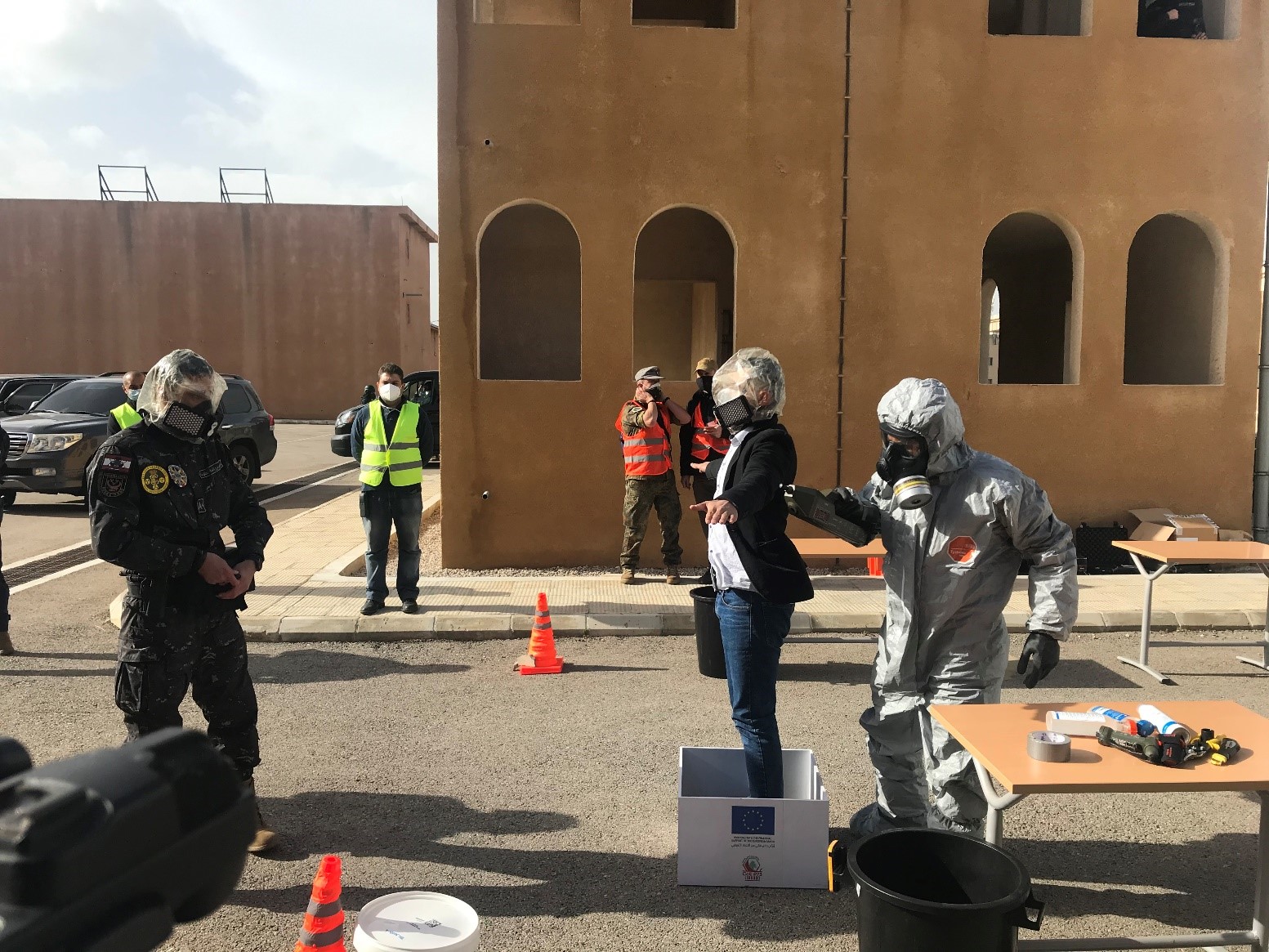CBRN Counter terrorism field exercise ARZ 2021 December 6-9 2021, Aramoun Training Village, Beirut, Lebanon

Under the patronage of the President of the Council of Ministers of Lebanon, a
4-day inter-agency Chemical, Biological, Radiological and Nuclear field exercise “ARZ 2021” was held on 6-9 December 2021 in Beirut, Lebanon.
The capabilities of terrorist organizations to use CBRN materials (chemical, biological, radiological and nuclear) for malicious purposes have improved over the last years. The prevention and interception of CBRN threats is essential to ensure the security of our societies. Immediate and appropriate first response is crucial to protect people, critical infrastructure and the environment. The Lebanese CBRN Coordinator has identified CBRN Terrorism as a national priority and a Field Exercise could be a tool to test the capabilities acquired by the Lebanese agencies in charge of responding to CBRN threats.
Field Exercise ARZ 2021, which focused on countering CBRN terrorism, has been carried out under the leadership of the CBRN National Coordinator and the European Union Centres of Excellence (EU CBRN CoE) National Focal Point of Lebanon. The event is organized by the International Science and Technology Center (ISTC) in collaboration with the United Nations Interregional Crime and Justice Research Institute (UNICRI), Fondazione SAFE and the on-site assistance expert of the EU CBRN CoE. The exercise is funded by the Directorate General FPI (Foreign Policy Instrument) of the European Commission within the framework of the EU CBRN CoE Initiative and aims to test capacities of relevant stakeholders and promote interagency coordination and cooperation to prevent, detect and counter CBRN terrorism at the national level.
The participants include representatives from different sectors, institutions and agencies, including the Beirut Fire Fighters, the Civil Defense, the Internal Security Forces, the Lebanese Atomic Energy Commission, the, Lebanese Armed Forces and the Red Cross. Each participant played a specific role in the simulation of real incidents, showing the different phases of a terrorism emergency which involve chemical, radiological and nuclear materials. The two scenarios of the exercise simulated the following situations:
Scenario 1: Illicit hazardous material storage and terrorist laboratory to produce chemical and biological warfare agents, dirty bombs and explosive devices.
Scenario 2: Attack on a VIP convoy using chemical materials and explosive devices.
The overall development and implementation of the field exercise were evaluated by representatives from the Organization for the Prohibition of Chemical Weapons (OPCW), INTERPOL, NATO School, the French Police, the German CBRN Defence and the Italian Armed Forces.
Representatives from international partner organizations and countries were attending as observers, namely from the European Union, the European Commission Joint Research Centre (JRC), the CBRN CoE network, Canada, the United States, the League of Arab States and the United Nations Department of Safety and Security (UNDSS).
The ISTC was represented by Executive Director, Mr. David Cleave. As part of the exercise, Mr. David Cleave presented a memorial plaque to Head of CBRN National Commission, Dr. Bilal Nsouli as a sign of respect and gratitude for the assistance provided in the organizational part of these exercises.
.jpg)

.jpg)
.jpg)
.jpg)
.jpg)
.jpg)

